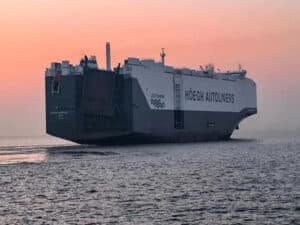
Berge Bulk partners with Kongsberg Maritime on decarbonization
Written by Marine Log Staff
Berge Bulk owns and manages a fleet of over 80 vessels, adding up to a total capacity of more than 14 million DWT.
Singapore-based dry bulk owner Berge Bulk and Kongsberg Maritime (KM) have signed a memorandum of understanding to jointly develop and advance the deployment of decarbonization technologies onboard dry bulk cargo vessels.
Berge Bulk has embarked on an ambitious environmental program that has produced ships like Berge Logan, which it says is the most energy-efficient bulk carrier in the world. Now, Berge Bulk aims to be carbon-neutral by 2025 at the latest and to have a zero-carbon ocean-going dry bulk carrier by 2030.
Such an ambitious program will require significant technical expertise and innovative talent to achieve. It will also present numerous technical, commercial and regulatory challenges. KM is Berge Bulk’s latest technology partner to step up to the challenge.
“We’re proud to have been chosen by Berge Bulk to accelerate its journey towards carbon-neutral operations,” says James Poulton, senior vice president, Kongsberg Maritime. “Together, we’ll be laying down a positive marker for maritime sustainability that will inspire a literal sea change for bulk carriers and beyond.”
There are two elements of the joint development project. The first element will be to evaluate and test emerging decarbonization technologies for use in the maritime sector. The second element will be to integrate both emerging and existing technologies into deployable systems that can be installed on Berge Bulk’s fleet of over 80 dry bulk vessels.
“Berge Bulk is actively engaged in identifying new emerging technology trends to help us reach our zero-carbon goals,” sayss James Marshall, CEO of Berge Bulk. “However, there are plenty of existing technologies that we can and should be leveraging today to reduce our vessel emissions now.”
Adapting existing technologies to maritime applications is no small order. A large proportion of decarbonization solutions were initially developed for shore-based applications, requiring significant technical adaptations to meet the unique demands of the marine environment. KM’s extensive experience developing technology solutions for marine applications is critical to the success of these projects and the broader acceptance of these technologies by the maritime sector. Together, the two companies hope to expand the array of clean technology options available to shipowners who want to reduce their emissions today.




